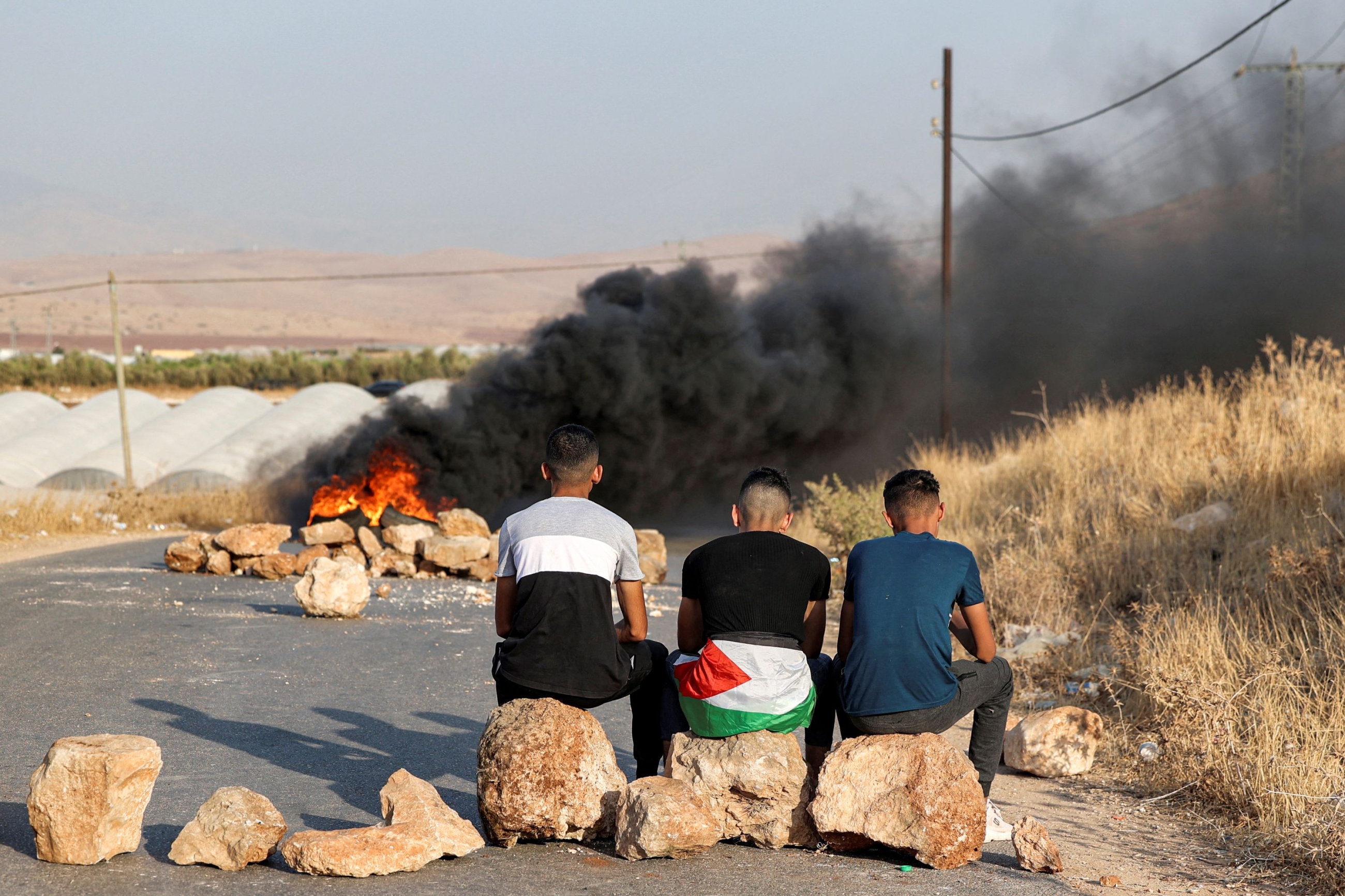West Bank: Israeli settlers injure Palestinians visiting natural spring

Five Palestinians were injured on Wednesday evening when they were attacked by a group of Israeli settlers in the Jordan Valley, near the city of Tubas in the northern occupied West Bank.
Safwat Daraghmeh, 30, told us that he was with his brothers and their children in the area of the Sakot Spring when 20 settlers suddenly attacked them.
The settlers were armed with batons, pepper spray, and stones. They gathered around the Palestinians and drove them away.
“The settlers threw stones at me and hit my brothers with batons. One of them stomped on my brother Muhammad's knee and tried to break it. Others sprayed burning gas in our faces amid insults and shouting,” he added.
Three children who were with Daraghmeh and his siblings - the oldest of whom was three years old - were left terrified and crying.
Stay informed with MEE's newsletters
Sign up to get the latest alerts, insights and analysis, starting with Turkey Unpacked
“In order to save the children from the settlers, we brought them into our car and covered them with a blanket, but the settlers threw stones and broke the window, which led to shards of glass flying at the children and wounding one of them,” Daraghmeh explained.
Palestinians have long used the Sakout Spring to irrigate their crops due to the severe water shortage in the northern Jordan Valley - a situation exacerbated by Israeli policies.
But settler activity means they are now deprived of its waters.
The spring was named after the village of Al-Sakot, which was destroyed by the Israeli army after its occupation of the West Bank in 1967.
Two years later, it declared the area a military zone, mined it, and closed it.
Attacked
In 2008, the Israeli army removed the mines and handed the area over to the settlers - while denying the Palestinians entry.
The Palestinians submitted several complaints to the Israeli courts, which returned part of the lands to them. But since then settlers have deliberately prevented Paestinians from being there and attack them whenever they find them.
Minutes after Wednesday's attack, an Israeli army force came to the spring, but instead of stopping the settlers, the soldiers instead protected them during their continuous assault on the family.
They even participated in the beating of Daraghmeh while he was defending himself, he says.
Twenty minutes after being severely beaten, Daraghmeh says that he was able to get into his car with his injured brothers. He then drove to the village of Ain al-Bayda, where people helped and transported them to a medical center to receive treatment.
“I got bruises in my legs, my brother Muhammad got deep cuts and bruises on his knees and he can't walk, Salah got hit in his back with stones and batons, Saqr and Abdullah got different injuries,” Daraghmeh said.
The settlers also stole Daraghmeh's bag, which contained his phone and the equivalent of around $2,000 in cash.
Takeover attempts
This isn’t the first time that Palestinians have been attacked in this area.
Daraghmeh says he was subjected to a similar attack two months ago while he was with his family for recreation near the spring.
The Palestinians believe that these repeated attacks are intended to prevent them from being near the spring in order to seize it and annex on behalf of settlements established on Palestinian lands in the northern Jordan Valley.
A human rights activist in the area, Aref Daraghmeh, told MEE that settlers had, during the past few years, seized nine water springs that Palestinians use to irrigate their crops and water their livestock.
He said that a year and a half ago, settlers from the nearby Makhula settlement had put up a fence around the Sakot spring and installed iron gates to prevent Palestinians from approaching it.
“Thousands of Palestinians were picnicking near this spring before it was fenced off. Now, settlers gather around and attack anyone who reaches the area, the clear goal is to intimidate and prevent access to it," he explained.
“What is happening in Al-Sakot Spring and the rest of the springs in the Jordan Valley is a tourist settlement process, where the settlers first visit the springs and then bring their families under the pretext of recreation, after which they fence them and seize them."
He added that pastoral settlement was another form of capture carried out by settlers, who bring their livestock to Palestinian lands and seize. He said that this has happened to hundreds of dunams in the northern Jordan Valley.
Daraghmeh added that although he was attacked several times by settlers, he would return again after he recovered from his wounds.
“Three years ago, I was run over by an Israeli military vehicle, which led to fractures in my leg and platinum implants inside it," he said.
"Despite all this, I insist on bringing my children and family to the spring that the settlers want to seize - we won’t allow them to steal it just as they stole all of our land."
Middle East Eye delivers independent and unrivalled coverage and analysis of the Middle East, North Africa and beyond. To learn more about republishing this content and the associated fees, please fill out this form. More about MEE can be found here.





